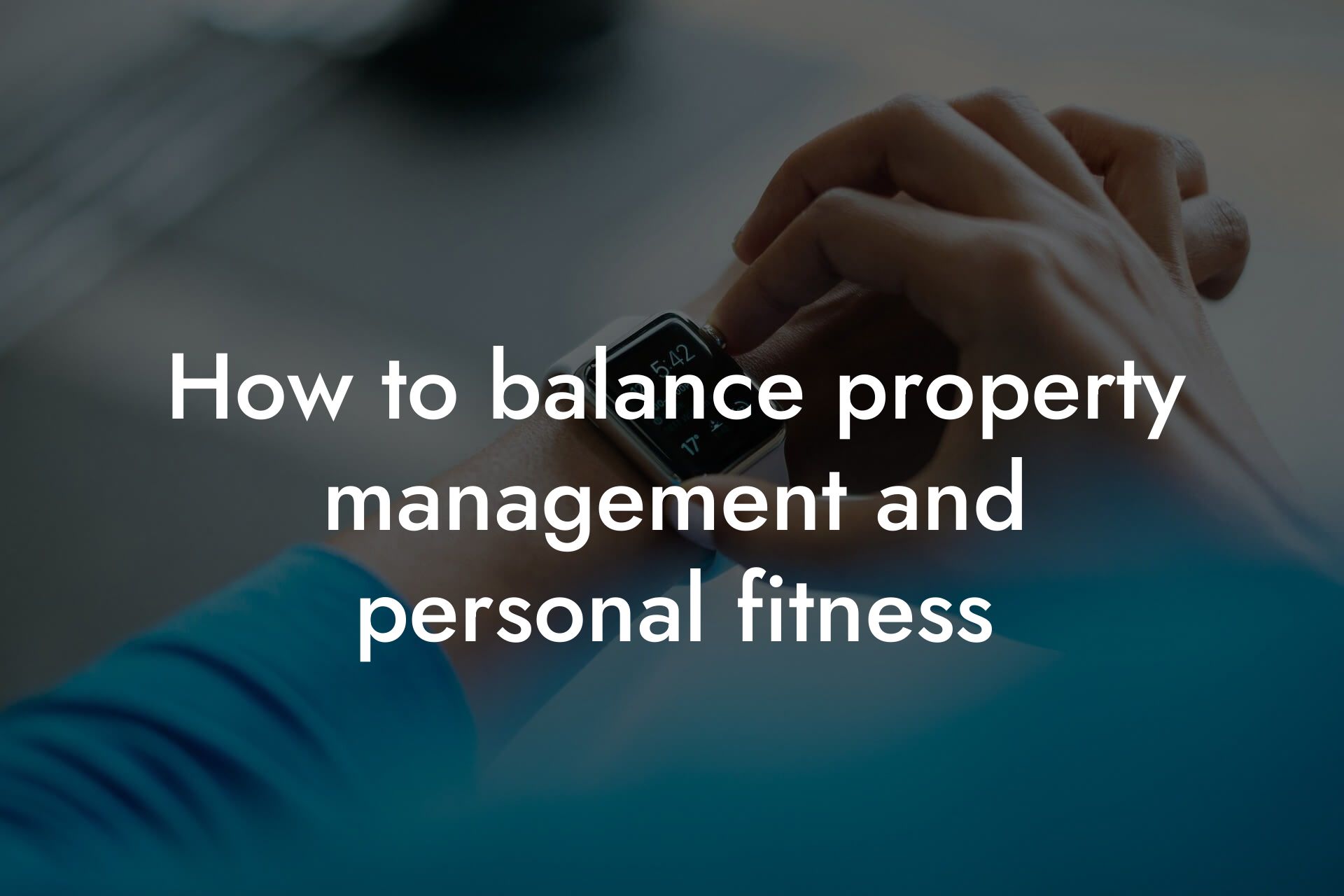As a high-earning professional in the real estate industry, you understand the importance of maintaining a healthy work-life balance. However, the demands of the job can often lead to stress, which can negatively impact your physical and mental well-being. In this article, we will provide you with practical tips and strategies to manage stress and maintain fitness in real estate, helping you to perform at your best and take your business to the next level.
Table of Contents
- The Impact of Stress on Your Body
- Identifying Stressors in Real Estate
- Time-Management Strategies for Reducing Stress
- Fitness Tips for Busy Real Estate Professionals
- Nutrition and Meal Planning for Optimal Energy
- Self-Care Strategies for Real Estate Professionals
- Using DEXA Scans to Monitor Progress
- Frequently Asked Questions
The Impact of Stress on Your Body
Chronic stress can have severe consequences on your physical health, including weight gain, fatigue, and decreased immune function. When you're stressed, your body produces cortisol, a hormone that can lead to increased belly fat storage and a slower metabolism. Additionally, stress can cause muscle tension, leading to aches and pains, and can even affect your bone density. As a real estate professional, you need to be at the top of your game, and chronic stress can hold you back from achieving your goals.
Identifying Stressors in Real Estate
In the fast-paced world of real estate, there are numerous stressors that can affect your mental and physical health. Some common stressors include:
• Long hours and irregular schedules
• High-pressure sales environment
• Dealing with difficult clients
• Managing multiple tasks and deadlines
• Constantly being "on" and available
Time-Management Strategies for Reducing Stress
Effective time management is crucial for reducing stress in real estate. Here are some strategies to help you manage your time more efficiently:
• Prioritize tasks based on importance and deadlines
• Set realistic goals and expectations
• Use a planner or calendar to stay organized
• Take regular breaks to recharge
• Learn to say "no" to non-essential tasks
Fitness Tips for Busy Real Estate Professionals
Finding time to exercise can be challenging, but it's essential for reducing stress and maintaining overall health. Here are some fitness tips tailored to busy real estate professionals:
• Start small: Begin with short, 20-minute workouts and gradually increase duration and intensity
• Schedule it in: Treat exercise as a non-negotiable part of your daily routine
• Find activities you enjoy: Engage in physical activities that bring you joy, whether it's walking, jogging, or yoga
• Incorporate high-intensity interval training (HIIT): This type of exercise is perfect for busy professionals, as it can be done in short bursts
• Invest in a fitness tracker: Wearable devices can help you stay accountable and motivated
Nutrition and Meal Planning for Optimal Energy
A healthy diet is essential for maintaining energy levels and reducing stress. Here are some nutrition and meal planning tips for real estate professionals:
• Focus on whole foods: Prioritize whole, unprocessed foods like fruits, vegetables, lean proteins, and whole grains
• Hydrate adequately: Drink plenty of water throughout the day to stay energized and focused
• Avoid sugary snacks: Opt for healthy snacks like nuts, seeds, and fruits to curb sugar cravings
• Meal prep: Prepare healthy meals in advance to save time and ensure you're fueling your body correctly
• Consider meal delivery services: Services like meal kits or healthy meal delivery can be a convenient option for busy professionals
Self-Care Strategies for Real Estate Professionals
Self-care is often overlooked in the real estate industry, but it's crucial for maintaining mental and physical well-being. Here are some self-care strategies to help you reduce stress and improve overall health:
• Prioritize sleep: Aim for 7-8 hours of sleep each night to help your body and mind recharge
• Practice mindfulness: Engage in mindfulness exercises, such as meditation or deep breathing, to reduce stress and anxiety
• Take breaks: Take short breaks throughout the day to stretch, move your body, and rest your eyes
• Seek support: Surround yourself with a supportive network of friends, family, and colleagues
• Schedule downtime: Make time for activities you enjoy, such as reading, hiking, or spending time with loved ones
Using DEXA Scans to Monitor Progress
At Tano Performance Group, we understand the importance of tracking progress and making data-driven decisions. Our DEXA scans provide a comprehensive body assessment, giving you valuable insights into your body composition, bone density, and overall health. By regularly tracking your progress, you can:
• Monitor changes in body fat percentage and muscle mass
• Identify areas for improvement
• Develop a personalized fitness and nutrition plan
• Stay motivated and accountable
Managing stress and maintaining fitness in real estate requires a holistic approach that incorporates time-management strategies, fitness tips, nutrition and meal planning, self-care strategies, and regular progress tracking. By implementing these strategies, you can reduce stress, improve your overall health, and take your business to the next level. Remember, investing in your physical and mental well-being is essential for achieving success in the competitive world of real estate.
Frequently Asked Questions
What are the common stressors in the real estate industry?
Real estate professionals often face high levels of stress due to factors such as tight deadlines, high-pressure sales environments, long hours, and the emotional demands of working with clients. Additionally, the industry is often characterized by uncertainty, rejection, and intense competition, which can further exacerbate stress levels.
How does stress affect physical fitness in real estate professionals?
Chronic stress can lead to a range of physical health problems, including weight gain, fatigue, and decreased immune function. In real estate professionals, stress can also impact physical fitness by reducing motivation, increasing reliance on unhealthy coping mechanisms, and disrupting sleep patterns.
What are some common physical health problems associated with stress in real estate?
Real estate professionals who experience chronic stress may be at higher risk for a range of physical health problems, including hypertension, cardiovascular disease, and musculoskeletal disorders. Additionally, stress can exacerbate existing health conditions, such as diabetes, and increase the risk of mental health problems like anxiety and depression.
How can real estate professionals prioritize self-care?
Prioritizing self-care is essential for managing stress and maintaining physical fitness in real estate. This can involve setting boundaries, taking regular breaks, engaging in relaxation techniques like meditation or deep breathing, and making time for activities that bring joy and relaxation.
What role does exercise play in managing stress in real estate?
Regular exercise is a powerful tool for managing stress in real estate professionals. Exercise can help reduce stress hormones, improve mood, and increase energy levels. Additionally, exercise can provide a healthy distraction from the demands of the job and improve overall physical fitness.
What types of exercise are most beneficial for real estate professionals?
Real estate professionals can benefit from a range of exercise types, including cardiovascular exercise, strength training, and flexibility exercises. High-intensity interval training (HIIT) and yoga can be particularly effective for managing stress and improving physical fitness.
How can real estate professionals fit exercise into their busy schedules?
Fitting exercise into a busy real estate schedule can be challenging, but there are several strategies that can help. These include scheduling exercise into the daily planner, finding exercises that can be done in short bursts, and incorporating physical activity into daily routines, such as taking the stairs instead of the elevator.
What are some healthy eating habits for real estate professionals?
Eating a healthy, balanced diet is essential for managing stress and maintaining physical fitness in real estate. This can involve focusing on whole, unprocessed foods, staying hydrated, and avoiding sugary and high-caffeine snacks.
How can real estate professionals stay hydrated on-the-go?
Staying hydrated is essential for real estate professionals, particularly those who spend long hours on the road or in the office. This can involve carrying a refillable water bottle, avoiding sugary drinks, and incorporating hydrating foods like fruits and vegetables into the diet.
What are some stress-reducing strategies for real estate professionals?
In addition to exercise and healthy eating, there are several other stress-reducing strategies that can be effective for real estate professionals. These include meditation, deep breathing, and journaling, as well as seeking support from colleagues, friends, and family.
How can real estate professionals set boundaries with clients and colleagues?
Setting boundaries is essential for managing stress and maintaining physical fitness in real estate. This can involve establishing clear expectations with clients and colleagues, learning to say no, and prioritizing self-care and personal time.
What are some common mistakes real estate professionals make when trying to manage stress?
Common mistakes real estate professionals make when trying to manage stress include neglecting self-care, relying on unhealthy coping mechanisms, and failing to prioritize physical fitness. Additionally, real estate professionals may underestimate the impact of stress on their physical and mental health.
How can real estate professionals prioritize sleep and relaxation?
Prioritizing sleep and relaxation is essential for managing stress and maintaining physical fitness in real estate. This can involve establishing a consistent sleep schedule, creating a relaxing bedtime routine, and avoiding stimulating activities before bedtime.
What are some relaxation techniques that can help real estate professionals manage stress?
Relaxation techniques like meditation, deep breathing, and progressive muscle relaxation can be highly effective for managing stress in real estate professionals. These techniques can help reduce stress hormones, improve mood, and increase feelings of relaxation and calm.
How can real estate professionals stay motivated to exercise and prioritize fitness?
Staying motivated to exercise and prioritize fitness can be challenging for real estate professionals, but there are several strategies that can help. These include setting realistic goals, finding an exercise buddy, and tracking progress and celebrating successes.
What are some common myths about exercise and fitness in real estate?
There are several common myths about exercise and fitness in real estate, including the idea that exercise requires a lot of time and equipment, or that it's only necessary for young people. In reality, exercise can be adapted to any schedule or fitness level, and is essential for overall health and well-being.
How can real estate professionals incorporate physical activity into their daily routines?
Incorporating physical activity into daily routines can be an effective way for real estate professionals to prioritize fitness. This can involve taking the stairs instead of the elevator, going for a short walk during breaks, or doing a few jumping jacks during commercial breaks while watching TV.
What are some resources available to real estate professionals for managing stress and prioritizing fitness?
There are several resources available to real estate professionals for managing stress and prioritizing fitness, including online fitness classes, wellness apps, and professional coaching services. Additionally, many real estate organizations offer wellness programs and resources specifically for their members.
How can real estate professionals measure their progress and track their fitness goals?
Measuring progress and tracking fitness goals is essential for real estate professionals who want to prioritize their physical fitness. This can involve using a fitness tracker, setting specific and measurable goals, and tracking progress through regular assessments and evaluations.
What are some common barriers to exercise and fitness in real estate?
Common barriers to exercise and fitness in real estate include lack of time, lack of motivation, and physical limitations. Additionally, real estate professionals may face barriers such as lack of access to fitness facilities or equipment, or feeling self-conscious about their body shape or size.
How can real estate professionals overcome these barriers and prioritize fitness?
Overcoming barriers to exercise and fitness requires creativity, persistence, and a willingness to adapt. Real estate professionals can overcome these barriers by finding exercises that can be done at home or on the go, finding a workout buddy or accountability partner, and seeking support from fitness professionals or online communities.
What are some long-term benefits of prioritizing fitness and managing stress in real estate?
Prioritizing fitness and managing stress can have a range of long-term benefits for real estate professionals, including improved physical health, increased energy and productivity, and enhanced overall well-being. Additionally, prioritizing fitness and managing stress can improve job satisfaction and reduce the risk of burnout.
Here are some related articles you might love...
- Quick workouts for real estate agents on the go
- How to balance property management and personal fitness
- Nutrition tips for maintaining energy during open houses
- The role of physical fitness in real estate sales success
- How real estate agents can stay active during property showings
- Staying fit while managing multiple properties
- The impact of physical health on client relationships in real estate
- The benefits of DEXA scans for real estate professionals
- Maintaining a professional appearance in the real estate industry
Zak Faulkner
Zak Faulkner is a leading authority in the realm of physical health and body composition analysis, with over 15 years of experience helping professionals optimise their fitness and well-being. As one the experts behind Tano Performance Group, Zak has dedicated his career to providing in-depth, science-backed insights that empower clients to elevate their physical performance and overall health.
With extensive knowledge of DEXA technology, Zak specializes in delivering comprehensive body assessments that offer precise data on body fat, muscle mass, bone density, and overall physique. His expertise enables individuals to make informed decisions and achieve their fitness goals with accuracy and confidence. Zak’s approach is rooted in a deep understanding of human physiology, combined with a passion for helping clients unlock their full potential through personalised strategies.
Over the years, Zak has earned a reputation for his commitment to excellence, precision, and client-focused service. His guidance is trusted by top professionals who demand the best when it comes to their health. Whether advising on fitness programs, nutritional strategies, or long-term wellness plans, Zak Faulkner’s insights are a valuable resource for anyone serious about taking their health and fitness to the next level.
At Tano Performance Group, Zak continues to lead our Content Team revolutionising how professionals approach their physical health, offering unparalleled expertise that drives real results.




